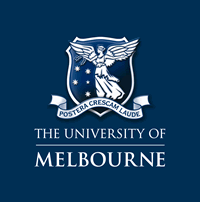Prof P Mulvaney
No more applications being accepted
Funded PhD Project (Students Worldwide)
About the Project
Applicants need to be Australian or German residents and have an undergraduate mark equivalent to an Australian H1 (score 80% or better) to be eligible.
Optical circuitry remains a long-cherished goal in the fields of high-density data storage and ultrafast communications. Logic gates can be used to modulate energy flow for energy-harvesting applications or monitored in photo-mathematical operations (optical logic). The gate may be activated with an input of light or an input flow of excitons. We aim to realize a chromophore system, where the middle chromophore (gate) regulates energy transfer between the first (source) and third (drain) chromophore, using both molecular and quantum dot systems. The Mulvaney group will prepare the quantum dots and link them with suitable dyes. The performance of these systems as optical gates will be verified by the J. Köhler group employing optical spectroscopy. We are seeking an Australian student to work on this project as part of a joint PhD with the University of Bayreuth. The successful student will spend a minimum of 12 months at Bayreuth, Institute of Physics. Knowledge of German is not essential but useful. Students with an interest in laser spectroscopy /single molecule spectroscopy and/or nanomaterials synthesis are sought.
Selection Criteria
ESSENTIAL
➢ MSc or equivalent in nanoparticle synthesis, spectroscopy, fast kinetics;
➢ Excellent written and oral communication skills;
➢ Demonstrated organisational skills, time management and ability to work to priorities;
➢ Demonstrated problem solving abilities;
➢ The ability to work independently and as a member of a team.
DESIRABLE
➢ Experience in optical instrumentation, high resolution spectroscopy, chemical synthesis and purification, chromatography.
Funding Notes
The Universities of Melbourne and Bayreuth have created a new, joint PhD program. Students from each University spend a minimum of 12 months at the partner University and submit a PhD thesis at each location. Students need to be Australian residents and have an undergraduate mark equivalent to those required for an APA. The project listed above is supported through the ARC Centre of Excellence in Exciton Science (ACEx).
https://excitonscience.com/news/melbourne-bayreuth-joint-phd-opportunity for more information.

 Continue with Facebook
Continue with Facebook

